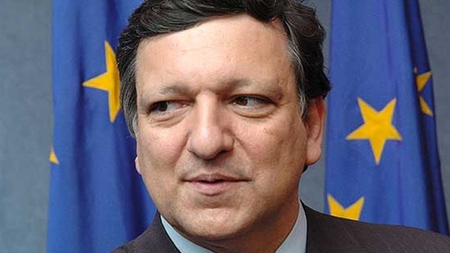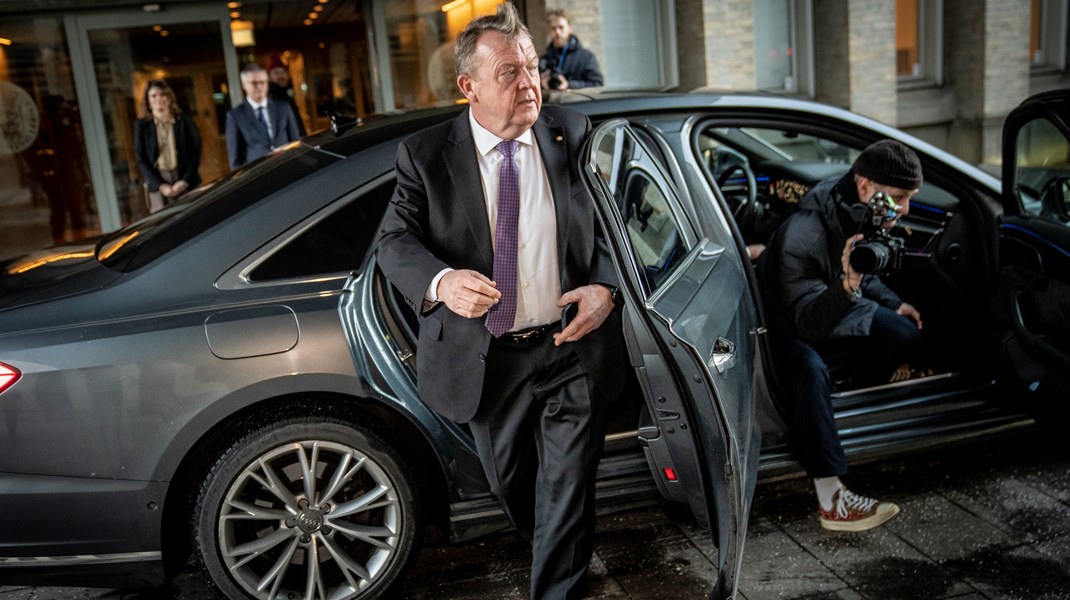Løkkes tale ved Commonwealth-klimamøde
DOKUMENTATION: Læs her Lars Løkke Rasmussens (V) tale ved Commonwealth-spidsernes klimatopmøde i Trinidad og Tobago.
Address by H.E. Lars Løkke Rasmussen, Prime Minister of Denmark, at the Special Session on Climate Change at the Commonwealth Heads of Government Meeting in Port of Spain, Trinidad & Tobago on November 27, 2009
Distinguished colleagues, Ladies and gentlemen.
Thank you for this opportunity to address you here at the Commonwealth Summit.
With representatives from over 50 countries from all corners of the world this is a unique opportunity to discuss the truly global nature of climate change - and the truly collective responsibility we have in addressing it forcefully. Over the course of the coming two days I will be looking forward to discussing with you how to make Copenhagen the success that people throughout the world are calling for.
I am particularly looking forward to engaging with a forum where so many of you come from countries where climate change is not only something scientists talk about in the news - but a stark reality in everyday life.
I know that for many of you climate change represents an immediate existential threat. You cannot afford the luxury of a failure in Copenhagen. This makes the challenge we are facing in Copenhagen very real.
In Copenhagen, we must meet this challenge by agreeing on an ambitious and binding agreement that builds on the principle of common but differentiated responsibilities and respective capabilities.
Such a comprehensive binding agreement must cover all aspects of the Bali mandates: That is a commitment of developed countries to undertake economy wide emission reductions and of developing countries to take mitigation actions. There must be a strong framework for adaptation and strong provisions on, finance and technology, including up-front finance for early action for adaptation, mitigation, technology, and capacity building.
Let me dwell on two of these aspects, namely financing and adaptation, and their relation to an overall development perspective.
It is important for me personally to underline that the financing of a new, climate agreement must not undermine efforts to reduce poverty and reaching the Millennium Development Goals.
While fighting climate change we need to take into account and respect developing countries' rights to economic and social development. In their efforts to their development, particularly the most vulnerable developing countries are being disproportionally affected by climate change. An agreement in Copenhagen needs to address this effectively, both in the short and long run.
Firstly, if developing countries are to be successful in the long run in their efforts to combating climate change we will need to provide substantially scaled up, new and additional financial resources for both mitigation and adaptation. Copenhagen will have to provide an adequate answer to this.
Secondly, it is evident that climate change is not only about tomorrow. For those who witness the rising sea, climate change is also very much about today. Therefore we also need to act now. Vulnerable countries cannot afford if we wait.
Therefore Copenhagen must also provide for an immediate and comprehensive global effort to curb the negative impacts of climate change. This will necessitate up-front financing. We cannot leave Copenhagen without major countries putting figures on the table - and industrialized countries must lead the way
It is also crucial that comprehensive adaptation measures become an integral part of a new agreement in Copenhagen. Adaptation requires flexible, country-led approaches, which focus decision-making at the country level and are supported by finance, technology and capacity building.
A robust framework for adaptation must also ensure up-scaled and improved access to support for national and regional risk reduction efforts, and must be equity-based. I believe such a framework is within reach in Copenhagen.
* * *
Our vision for Copenhagen is "one Agreement - two purposes".
Firstly, the Copenhagen Agreement must have a solid content covering all the Bali building blocks: shared vision, mitigation, adaptation, finance, technology and capacity building. This will provide a strong impetus and guidance to further negotiations on a legal framework.
Secondly, the agreement should provide for immediate action in all areas, including mitigation, adaptation and finance. Significant up-front finance should support early adaptation and mitigation efforts as well as capacity building and technology cooperation.
This twin-approach rests on the conclusion of a politically binding agreement that retains the overall aim of limiting global warming to a maximum of 2 degrees Celsius as called for by science.
We should not postpone action until a legally binding instrument is agreed, signed and ratified, and effective. We should capture the current political momentum and start combating global warming immediately.
Let me underline again, that when I speak of the Copenhagen Agreement then I am not talking about an empty declaration with niceties but a document with precise language covering all aspects of the Bali road map. It's not a stepping stone, it's a turning point.
* * *
I truly believe that this approach is the only realistic one, and the one that allows us the highest level of ambition. Not least because it demonstrates our willingness to achieve results with immediate impact.
Over the last months, I have consulted widely with world leaders in order to pave the way for a successful conclusion of COP15. I sense broad support for our approach. If we build on this political commitment at the highest level then we can seal the deal in Copenhagen.
It's thus my firm belief, that Copenhagen is capable of delivering the turning point we all want. We know the problem. We know the solutions. We know what we need to do. From here on it's a matter of political will.
Two weeks ago Denmark issued invitations to the world's heads of state and government to conclude the conference at the leaders level. The response so far has been overwhelmingly positive. More than 85 heads of state and government have told us they are coming to Copenhagen, and many are still positively considering.
A strong deal - sealed at the leaders level - will serve as a clear and detailed guidance for negotiators to quickly finalize a legal framework. The stronger the deal, the faster we reach our end goal.
We cannot afford to waste the strong momentum pointing towards Copenhagen. We cannot risk turning climate change into another international issue negotiated into infinity. We must deliver to our citizens in Copenhagen.
Thank you for letting me speak today, I look forward to welcoming you in Copenhagen in December.

 Barrosos nye hold sat
Barrosos nye hold sat
 Kristiansen: Løkkes projekt bremses af Fogh
Kristiansen: Løkkes projekt bremses af Fogh
